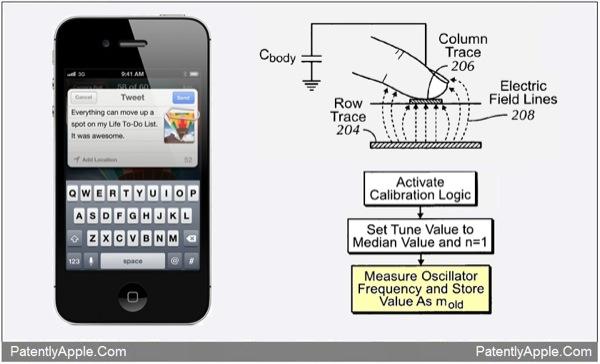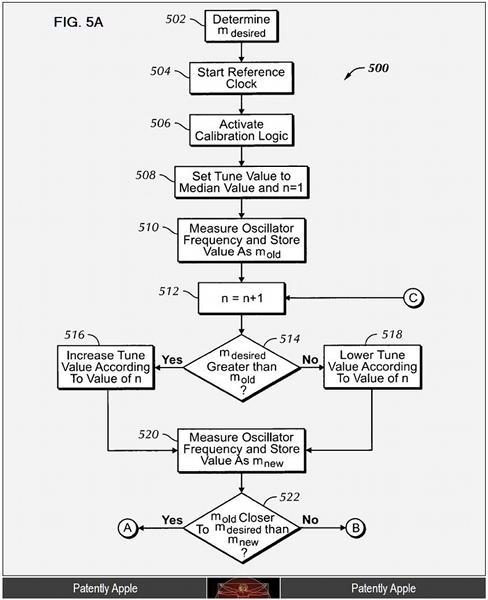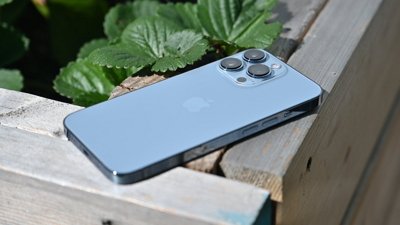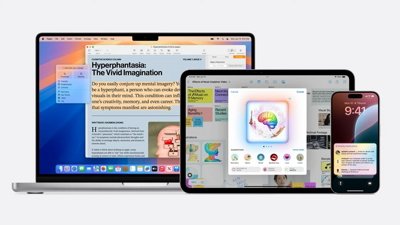The United States Patent and Trademark Office published on Tuesday that the Cupertino, Calif. company now owns a crucial patent that describes how touch events are recognized by a touchscreen device, and was one of the "200+ Patents for new inventions" Jobs lauded when the iPhone first debuted, reports Apple patent blog Patently Apple.
The newly granted patent focuses on the oscillator signal and circuit of a touchscreen-equipped device, an integral invention directly related to how users interact with their multitouch products.
Apple states in the filing:
"In general, multi-touch panels may be able to detect multiple touches (touch events or contact points) that occur at or about the same time, and identify and track their locations."
Previous to the iPhone's introduction in 2007, most touch-capable devices relied on single-touch input like resistive touchscreens. The legacy technology "senses" a touch when two electrically resistive sheets separated by a small gap are connected by the push of a finger or stylus, which in turn creates a voltage division that is detected by a device controller that records the change along the x and y axes.
Resistive displays are limited in that they can only recognize single inputs no matter how many objects are touching the screen.
One way to record multiple touches at a time is to generate an oscillating signal circuit that can power and clock inputs over a substrate as in a capacitive touchscreen display, however it is difficult to create a precise circuit-based oscillator.
Apple wins oscillator signal and circuit multitouch patent | Source: Patently Apple
Apple's patent provides a solution to capacitive touchscreen problem by using calibration logic circuitry which compares the signal oscillation against a reference signal and tunes the clock frequency accordingly. The invention provides for an accurate capacitive display that can not only sense multiple touches, but also detect hover or near touches which are also recognized as "touch events."
The patent wording states that the invention could apply to computing devices such as desktops, laptops, tablets or handhelds, including digital music and video players and mobile telephones. Also mentioned are public computing systems like kiosks and ATMs.
The news follows a Dec. 19 U.S. International Trade Commission decision which resulted in an import ban on HTC Android handsets that infringe on Apple's Data Detectors patent. The injunction will take take effect on April 19, 2012, however HTC CEO Peter Chou said the Taiwanese company is already testing workarounds to bypass the ITC ruling.
 Mikey Campbell
Mikey Campbell








-m.jpg)






 Malcolm Owen
Malcolm Owen
 William Gallagher
William Gallagher

 Chip Loder
Chip Loder
 Marko Zivkovic
Marko Zivkovic







-m.jpg)




45 Comments
The patent system is maddeningly slow and inefficient. But at the end of the day, if somebody is systematically ripping off patented technology, they will eventually pay a price -- so long as the patent owner has the financial resources and patience to stick it out until the end of the process. Apple meets those criteria and so does Oracle.
Google and pals will pay for their crimes.
I sure hope so.
Google created Android to kill innovation in the mobile world. Unfortunately for Google this isn't working as good as they hoped. Microsoft is collecting royalties on Android rendering Android non-free for hardware vendors. Also companies like Baidu and Amazon are using Android to compete against Google and cutting Google off of any profits that they might make. Android might stifle innovation as Google intended but it will also compete against itself, leaving Google with an expensive endeavor that can never be truly monetized and if we are lucky Google will slowly distance itself away from it.
Brace for hater butthurt
Brace for hatter butthurt
Is that mad hatter butthurt?